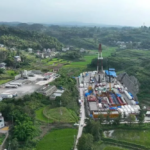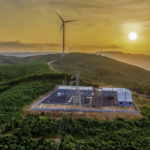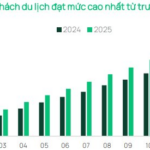Concerns Over Rising Electricity Prices
“I’m worried about the recent proposal by the Ministry of Industry and Trade to allow EVN to include their accumulated losses of over 44.7 trillion VND in the average electricity selling price,” said Mr. Phung The Anh, a resident of Bach Khoa ward, Hanoi. “My family runs a business, and our average monthly electricity bill is already 8-10 million VND, a 30% increase from before. This is a significant expense for us.”
“I fear that if the government approves this proposal, electricity prices will continue to rise. In these challenging economic times, every extra dong added to our expenses could make it harder for us to stay afloat,” he added.
Mr. Khau Hai Nam, a leader of a food company in Chuong My ward, Hanoi, shared similar concerns. His company’s average monthly electricity expense is 600-800 million VND, accounting for 2% of their production and business costs. “If electricity prices go up, this expense will increase while our consumption remains the same,” he said. “This could directly impact our revenue and the income of our employees. We will have to carefully recalculate our expenses to maintain our workforce.”
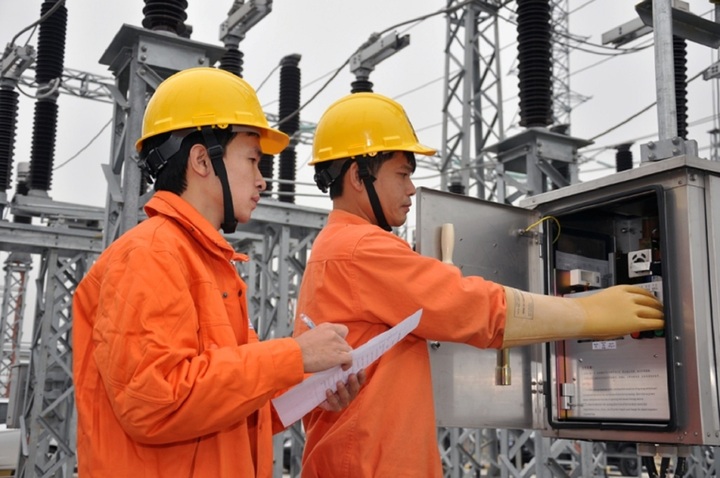
People worry about their electricity bills increasing due to EVN’s losses. (Illustrative image: EVN)
Mr. Nam also shared his thoughts on EVN’s nature as a special enterprise. He believes that their primary purpose is to contribute to the country’s socio-economic development. “We shouldn’t evaluate EVN’s performance solely based on profit and loss like other businesses,” he said. “Sometimes EVN may incur losses, but the value they bring to the economy is immense. Therefore, being in the red is not always the most critical factor.”
Regarding the nearly 45,000 billion VND loss, Mr. Nam suggested that if this amount were distributed over the total annual electricity consumption nationwide of about 300 billion kWh, each kWh of consumed electricity would bear about 150 VND. He added that if the government spreads this loss over multiple years, the burden on each kWh of electricity would be even lower.
Gradual Price Increase
Amid these concerns, Mr. Ho Sy Quang, Deputy Head of the Electricity Price Management Division, Electricity Department, Ministry of Industry and Trade, assured that any price increase would be gradual and within EVN’s authority to adjust electricity prices. “There won’t be any sudden spikes in prices,” he said. “This is in line with the Prime Minister’s directive to avoid abrupt changes in electricity prices, ensuring a balance between the interests of consumers and the goals of economic and social development, while also staying within the inflation target set by the National Assembly.”
Mr. Quang also explained that EVN’s loss of over 44,000 billion VND was publicly disclosed in 2023-2024 through audited financial reports and published business results. This loss occurred during a period heavily impacted by geopolitical factors, including the Russia-Ukraine conflict, which caused a sharp increase in fuel input costs for electricity production. At the same time, to stabilize the economy during the COVID-19 pandemic, retail electricity prices had to be kept unchanged in 2022, resulting in a mismatch between rising input costs and stagnant output prices, creating difficulties for EVN.
Following the government’s directive, electricity prices were adjusted gradually to support businesses and the economy. However, with fuel and energy prices remaining high, the lack of timely adjustments to electricity prices has led to EVN’s losses accumulating. “This situation is undeniable, but it hasn’t been addressed at the right time,” Mr. Quang said.
He emphasized that if these losses are not addressed, the corporation’s capital, which is state capital, will be directly affected. Without profits, EVN cannot reinvest in new energy projects, jeopardizing the country’s energy security.
“EVN’s losses need to be addressed by properly calculating and recovering reasonable production costs that haven’t been accounted for or recovered at the right time,” Mr. Quang said. “This recovery should have been implemented in the 2023-2024 period, but EVN has not been able to do so.”
Mr. Quang acknowledged that including these costs in electricity prices would have some impact. However, according to regulations, EVN must carefully calculate and coordinate with relevant authorities, including the Statistics Office and the Ministry of Finance, to assess the comprehensive impact of these changes. The entire loss of over 44,000 billion VND may not be immediately reflected in electricity prices, and EVN and the state management agency will have to come up with a reasonable allocation plan to minimize negative effects on the economy and people’s lives.
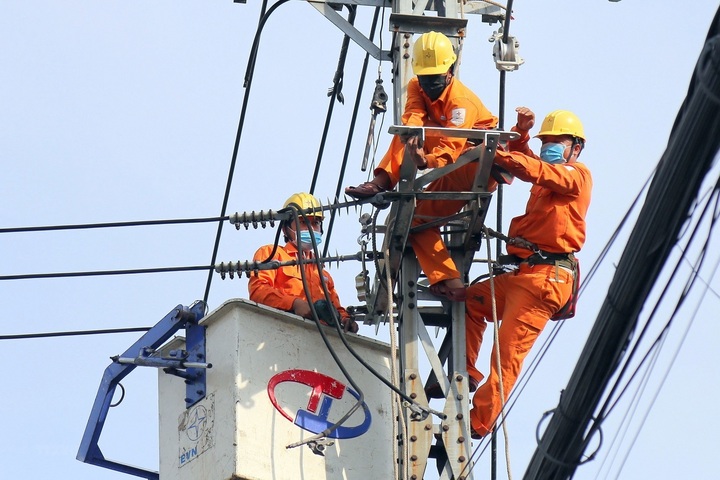
Experts believe that accounting for business losses in the average electricity price will not significantly increase monthly bills. (Image: EVN)
Dr. Vo Tri Thanh, former Vice Director of the Central Institute for Economic Management and Director of the Institute for Brand and Competition Strategy, emphasized that electricity pricing must adhere to the principle of ensuring cost recovery, properly calculating and fully accounting for reasonable and legitimate expenses, along with necessary profits for reproduction, and complying with legal regulations.
“If EVN’s losses are due to their own poor business performance, they should bear the responsibility. However, if the government intentionally keeps electricity prices low for socio-economic reasons, leading to losses that prevent the preservation of state capital, appropriate solutions are needed,” he said.
“Addressing this deficit by gradually including it in electricity prices is not contrary to the principle of electricity price formation, the Electricity Law, or the Price Law (Clause 7, Article 4 of the 2023 Law on Prices, which states that ‘The elements forming the price include the actual production cost, profit (if any) or loss (if any), and financial obligations prescribed by law’).”
On the other hand, some experts argue that now is not the right time to raise electricity prices, especially by including old losses. While the economy has shown positive signs in the first half of the year, it still faces risks in the remaining months of 2025, particularly new US tariffs. Higher electricity prices will increase input costs for businesses already struggling, affecting the livelihood and income of workers.
Experts also pointed out that these losses occurred in previous years and were not part of the 2025 business plan. Therefore, instead of simply transferring the entire loss to electricity prices, only a reasonable portion should be considered. They also called for comprehensive reforms to ensure EVN’s stable and sustainable operation, rather than repeatedly passing on losses to consumers.
The Ministry of Industry and Trade has recently finalized a draft decree amending and supplementing a number of articles of Decree 72/2025/ND-CP dated March 28, 2025, of the Government on the mechanism and time frame for adjusting the average retail electricity price, along with a report to seek opinions from relevant ministries, sectors, and units before submitting it to the Government for consideration.
The most notable content is EVN’s proposal to amend and supplement Decree 72 to allow the recovery of costs directly serving the production and supply of electricity, which have not been fully calculated and covered in the average retail electricity price in previous years, based on the results of the announcement of electricity production and business costs or audited financial statements.
According to EVN’s report, due to the impact of the world geopolitical situation, the cost of purchasing electricity increased sharply in the period of 2022-2023, leading to difficulties in EVN’s production and business activities, with a cumulative loss of about VND 50,029 billion in these two years. By the end of 2024, the accumulated loss of the parent company – EVN was still about VND 44,792 billion.
This has led to a decrease in the state capital invested in EVN, failing to preserve the state capital invested in the enterprise. Therefore, if these costs are not recovered in the electricity price, they will not be able to make up for the decrease in state capital investment in the previous years.
Therefore, EVN proposed to the Minister of Industry and Trade to report to the Prime Minister to allow the calculation of this accumulated loss as a cost that is allowed to be included in the average retail electricity price.
Inauguration of the 1,500 Billion VND Hai Anh Wind Power Plant
The Hai Anh Wind Power Plant project is a landmark initiative, proudly standing in the communes of Huong Phung and Lao Bao in Quang Tri Province. This ambitious undertaking represents a Group B energy project, ranked as a second-tier venture with an impressive 40 MW capacity. With a substantial investment of 1,500 billion VND, this onshore wind farm is a pioneering effort, being the first of its kind to partake in the Joint Crediting Mechanism (JCM) – a testament to the strong collaboration between the governments of Vietnam and Japan.

